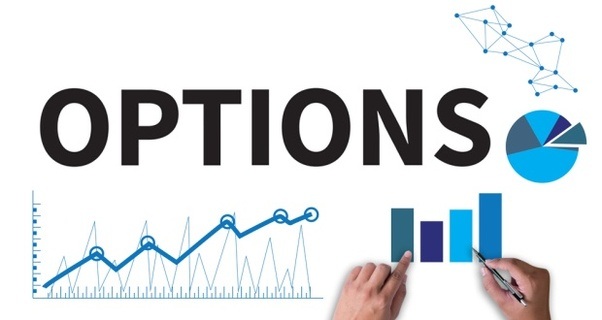What Are Options

Average Rating 5.00 / 5
5 Reviews
5396
By : JakeAmaral
Share :
You've probably heard of the term Options time and time again but what are options exactly?
I have seen great success with day trading options and want the world to know more about them.
Buckle your seat belts because I am here to explain them to you.
Options are a trading instrument for people who don’t like to invest heavily in stocks. It is basically an agreement between two parties to sell or purchase the right to an underlying stock. For e.g. The buyer of an Option pays a premium to the seller with a hope or speculation that the stock price may move up before the expiration of the agreement or vice versa.
Options are a derivative, meaning their value is based on something else like a stock or commodity. When trading options you buy what is called contracts which grants you the right, but not the obligation to buy or sell an underlying asset at a set price on or before a certain date. There is 2 types of options, a call and a put. A call option gives the holder the right to buy stock and a put option gives the holder the right to sell stock. If your buying a call your betting the security will go up in value (like going long in a stock) and if you buying a put your betting it will go down in value (like going short in a stock).
People who buy options are called holders and those who sell options are called writers of options. Don't worry if this seems overwhelming, it did for me at first its just important to know these fundamentals.
Are you looking for an options trading mentor and course? Check out Don an options trading mentor here : https://wetradehq.com/mentors/DonFronShow
Options Terminology
Options has quite the terminology, it's important to understand these terms prior to trading.
The term strike price of an option contract is the price at which an underlying stock can be bought or sold. This is the price a stock price must go above (for calls) or go below (for puts) before a position can be exercised for a profit. This must occur on or before the expiration date in order to be in-the-money. For example, say the strike price for the S&P 500 put option was 2750. The index had to fall below 2750 on or before expiration to be exercised for a profit.
The term expiration date, or expiry, of an option is the precise date that the option contract terminates.
A listed option is an option that is traded on a national options exchange such as the Chicago Board Options Exchange (CBOE). Listed options have fixed strike prices and expiration dates. Each listed option represents 100 shares of stock which would be 1 contract.
For call options, the option is in-the-money if the share price is above the strike price.
For example: SQ April 50 Call. SQ stock is trading at $55. The Call is $5 in-the-money.
A put option is in-the-money when the share price is below the strike price. For example:
SQ April 50 Put. SQ stock is trading at $45. The Put is $5 in-the-money.
The amount by which an option is in-the-money is also referred to as its intrinsic value. For example:
SQ April 50 Call. SQ stock is trading at $55. The Call is $5 in-the-money and also has $5 of intrinsic value.
An option is out-of-the-money if the price of the underlying remains below the strike price (for a call), or above the strike price (for a put). An option is at-the-money when the price of the underlying is at or very close to the strike price. For example:
SQ April 50 Call. SQ stock is trading at $45. The Call is out-of-the-money and also has no intrinsic value.
SQ April 50 Put. SQ stock is trading at $55. The Put is out-of-the-money and also has no intrinsic value.
SQ April 50 Call. SQ stock is trading at $50. The Call is at-the-money and also has no intrinsic value.
SQ April 50 Put. SQ stock is trading at $50. The Put is at-the-money and also has no intrinsic value.

Remember, the total cost (the price) of an option contract is called the premium. This price is determined by a few factors, including:
- stock price
- strike price
- time remaining until expiration (time value) (Theta)
- volatility (Vega)
As a side note, employee stock options aren't available for everyone to trade, they are still a type of call option. Many public companies use stock options as a way to attract and to keep talented employees, especially management. They are similar to regular stock options in that the holder has the right but not the obligation to purchase company stock. The employee stock option contract, however, exists only between the holder and the company. It typically cannot be exchanged with anybody else. A listed option however, is a contract between two parties that is completely unrelated to the company and can be traded freely.
I personally day trade SPY options, will make some more advanced guides soon!